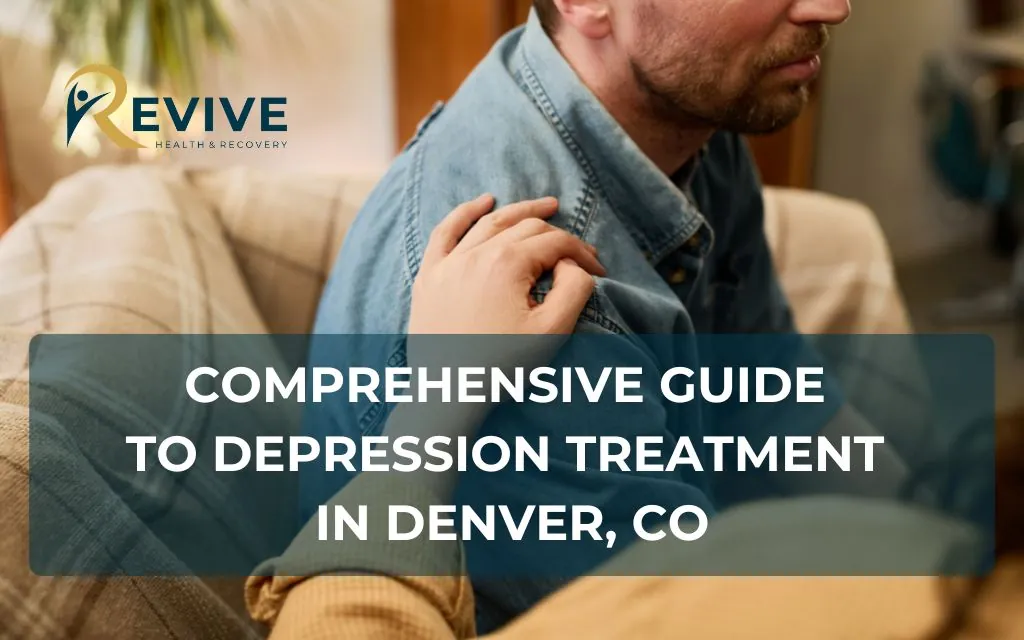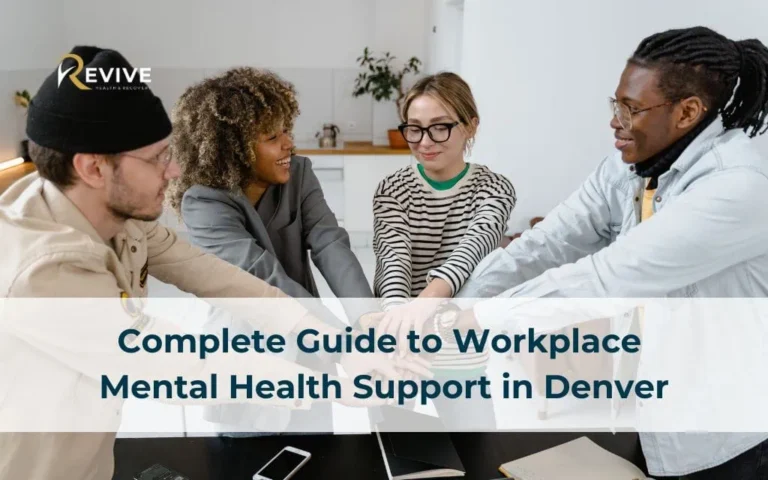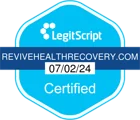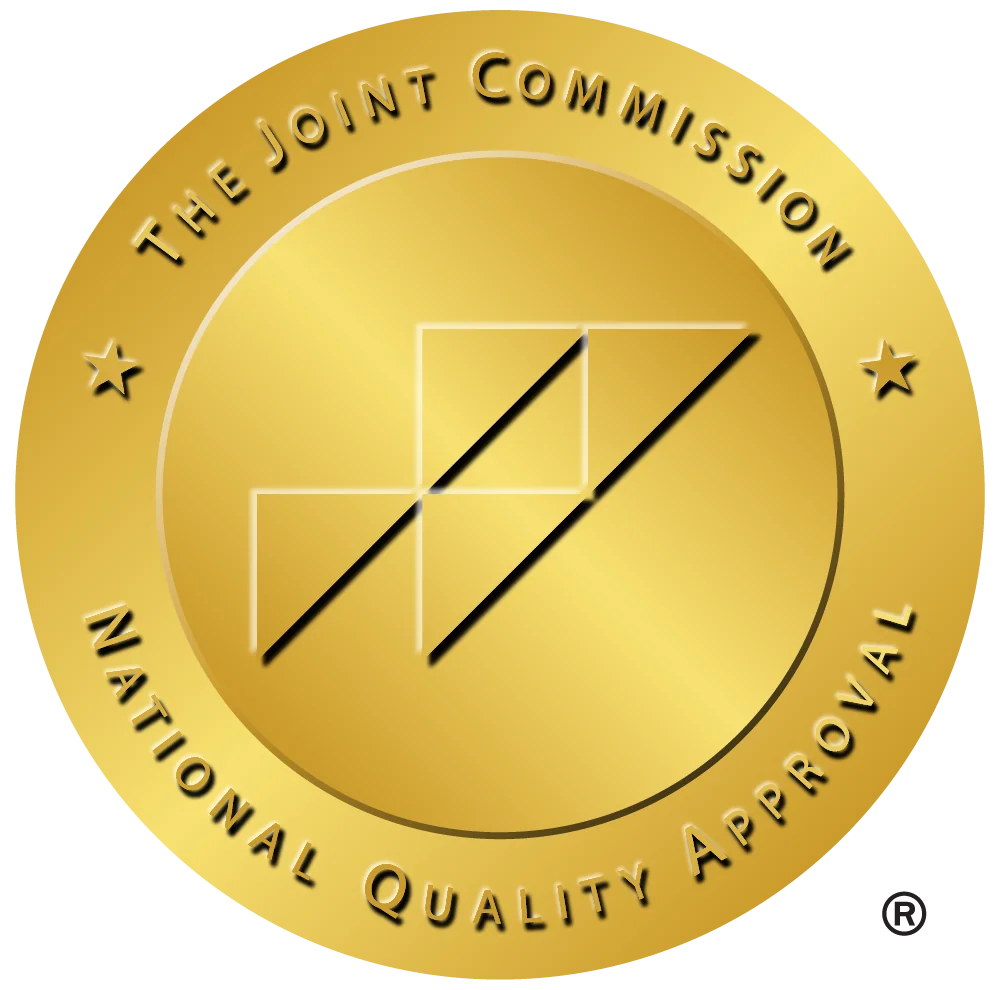Living with depression can feel overwhelming, yet numerous treatment for depression options are available to help individuals in Denver find relief and recovery. From counseling and therapy to innovative medical treatments, Revive Health Recovery Denver’s mental health services provide a broad array of support options for those struggling with depression.
Early intervention and a thorough understanding of the treatment options available can be essential steps toward managing this condition. Depression Treatment Denver, Colorado is home to many mental health professionals and specialized facilities that offer both traditional and holistic therapies, ensuring that anyone seeking help can find a path that suits their unique needs and circumstances.
Understanding Depression and Its Impact
Common Symptoms of Depression
Depression manifests in various emotional, behavioral, and physical symptoms. Emotionally, individuals may experience intense feelings of sadness, hopelessness, and worthlessness, often accompanied by a loss of interest in activities they once enjoyed. Behaviorally, depression can lead to isolation, changes in appetite, or altered sleep patterns. Physical symptoms may include fatigue, persistent aches, and a weakened immune response. Together, these symptoms affect overall quality of life and can be challenging to manage without treatment.

Why Early Treatment Matters
Early intervention in depression treatment can prevent symptoms from worsening, allowing individuals to reclaim their lives sooner and avoid potentially severe consequences. Receiving timely care can decrease the risk of complications such as co-occurring anxiety, substance abuse, or chronic health issues, underscoring the importance of seeking help at the first signs of depression.
Types of Depression Treatments Available in Denver
Cognitive Behavioral Therapy (CBT)
Cognitive Behavioral Therapy (CBT) is one of the most commonly used therapies for depression treatment Denver. It focuses on identifying and modifying negative thought patterns that contribute to depressive symptoms. In Denver, many licensed therapists are skilled in CBT, guiding patients to recognize unhelpful thought processes and replace them with more balanced perspectives. This approach equips patients with long-term tools to manage depressive symptoms.
Medication and Antidepressants
Medication can play a crucial role in managing depression, particularly for moderate to severe cases. In Denver, psychiatrists may prescribe antidepressants, including SSRIs (Selective Serotonin Reuptake Inhibitors) or SNRIs (Serotonin and Norepinephrine Reuptake Inhibitors), which help regulate brain chemistry associated with mood. These medications are often used in conjunction with therapy to support a comprehensive treatment plan.
Transcranial Magnetic Stimulation (TMS) Therapy
For individuals resistant to traditional treatments, Transcranial Magnetic Stimulation (TMS) provides an alternative, non-invasive option. TMS therapy uses magnetic fields to stimulate nerve cells in the brain, potentially alleviating depressive symptoms without the side effects associated with medication. Several Denver-based clinics, such as Inspire TMS, offer customized TMS protocols, making it accessible for individuals seeking alternative therapies.
Spravato (Esketamine) Therapy
Spravato, a nasal spray form of esketamine, has emerged as a treatment for those with treatment-resistant depression. This FDA-approved option is offered in select Denver facilities under medical supervision. Spravato is particularly beneficial for individuals who have not responded well to other treatments, providing rapid symptom relief when administered in a controlled setting.
Alternative and Holistic Therapies for Depression
Holistic and Complementary Approaches
Holistic therapies, which include lifestyle adjustments and complementary practices, can support traditional depression treatments. Denver offers various programs incorporating yoga, meditation, art therapy, and nutrition counseling, all aimed at promoting mental well-being. Such approaches, often considered in tandem with primary treatments, provide a whole-body approach to recovery, helping individuals cultivate resilience and enhance their quality of life.
Group Therapy and Support Groups
Group therapy and support groups offer a sense of community, allowing individuals to share experiences and gain encouragement from others facing similar struggles. These groups are widely available across Denver and can be an effective component of a broader treatment plan. In addition to emotional support, group settings provide insights into coping strategies and ways to navigate daily challenges associated with depression.
Choosing the Right Treatment Facility in Denver
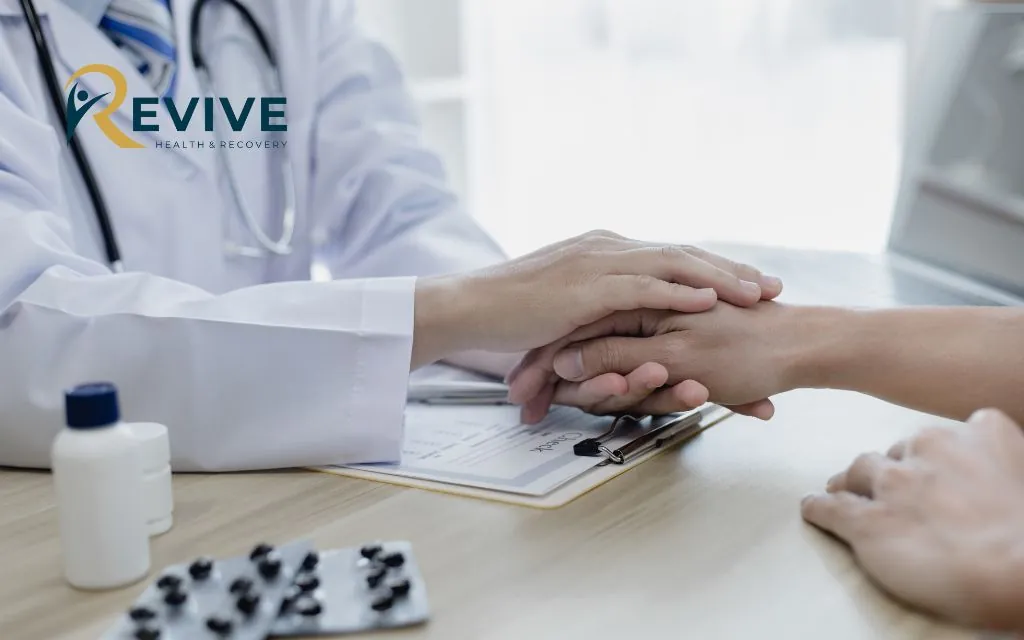
What to Look for in a Depression Treatment Center
When searching for a depression treatment center in Denver, several factors should be prioritized. A reputable center should offer a licensed and experienced team of mental health professionals, including therapists, psychiatrists, and support staff trained in evidence-based treatments. Look for facilities that emphasize individualized treatment plans, as personalized approaches tend to result in better outcomes. Additionally, centers with flexible options, such as inpatient and outpatient services, can accommodate various needs. Accreditation, such as from the Joint Commission, can also indicate a center’s commitment to high standards of care.
Inpatient vs. Outpatient Programs
Choosing between inpatient and outpatient treatment depends on the severity of depression and personal circumstances. Inpatient programs are ideal for individuals who require intensive, round-the-clock care, particularly those with severe or treatment-resistant depression. Outpatient programs, on the other hand, provide comprehensive care while allowing individuals to maintain their daily responsibilities. Denver offers both options, with many facilities specializing in intensive outpatient programs for depression that provide structured support without requiring full-time residence. Outpatient treatment is a common choice for those with mild to moderate symptoms who wish to stay connected to their family and community while receiving care.
Navigating the Financial Aspects of Treatment
The financial aspect of depression treatment can be a concern, but many options exist to make care affordable and accessible in Denver. Checking insurance coverage is often the first step; many insurance providers cover mental health services, including therapy, medication, and sometimes specialized treatments like TMS or Spravato. Some Denver facilities offer sliding-scale fees based on income, making therapy and counseling more affordable for individuals and families. In addition, several local nonprofits provide mental health services at reduced rates or, in some cases, free of charge, helping ensure that finances are not a barrier to obtaining needed support.
Steps to Take if You Suspect Depression
Initial Assessment and Diagnosis
An accurate diagnosis is essential for developing an effective treatment plan. Most mental health facilities in Denver offer initial assessments to determine the nature and severity of symptoms. This evaluation, typically conducted by a licensed mental health professional, may include a discussion of current symptoms, medical history, and lifestyle factors. An accurate assessment will help to create a tailored plan addressing the specific type and level of depression, ensuring the treatment approach is suitable for the individual’s needs.
Developing a Personalized Treatment Plan

Once an assessment is complete, the next step is to create a personalized treatment plan. This plan often combines multiple therapies, such as CBT and medication, to provide comprehensive care. Many Denver-based providers work collaboratively with patients to outline goals and discuss preferences for treatment types. For some, this may include holistic or alternative approaches to supplement traditional therapies. A personalized plan not only improves engagement but also ensures that each component is aligned with the individual’s unique challenges and goals for recovery.
Conclusion
Finding effective depression treatment Denver is a journey that offers hope and a range of options for people at all stages of recovery. With an abundance of therapy, counseling, medical treatments, and holistic approaches available, individuals struggling with depression can find a path that suits their needs. Support groups and community resources in Denver also play an essential role in helping people overcome isolation and find the encouragement needed to continue moving forward. Reaching out for help is the first step in the recovery process, and Denver’s comprehensive mental health services provide a supportive environment to make that step achievable and transformative.
Related posts:
- Find Effective Depression Treatment Near Me for Lasting Relief
- IOP for Depression: What to Expect from Intensive Outpatient Programs
- Transformative Healing at Luxury Depression Treatment Centers
